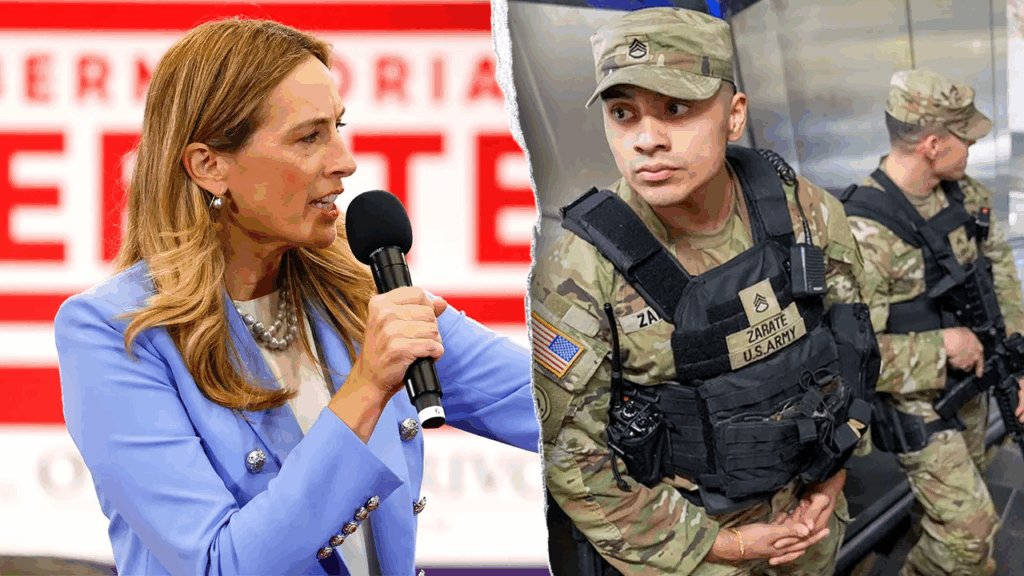In a heated exchange that cuts to the heart of public safety and constitutional authority, New Jersey gubernatorial candidate Mikie Sherrill took a firm stance against deploying military forces in American cities during Wednesday night’s debate in New Brunswick.
Like a storm brewing over the Jersey shore, the controversy surrounding domestic military deployments has become a lightning rod in this closely watched race. Sherrill, drawing from her unique background as both a former military officer and federal prosecutor, delivered what might be called a double-barreled critique of putting troops on city streets.
“Military members should not be on our streets,” Sherrill declared with the conviction of someone who’s walked in both worlds. “It makes people less safe, it makes people feel less safe.” Those words hung heavy in the debate hall at Rutgers University, where the fundamental question of how to maintain public order while respecting constitutional boundaries took center stage.
The Democratic candidate didn’t just stop at general opposition. She dug deeper into the legal weeds, citing specific concerns about presidential authority under the Insurrection Act. “Unless there is an insurrection or some sort of crisis where the National Guard could come in and the president invokes the Insurrection Act, he’s moving these National Guard troops across the country illegally,” she explained.
But her Republican opponent, Jack Ciattarelli, wasn’t buying what Sherrill was selling. Like a prosecutor making his case to the jury, Ciattarelli challenged her record on public safety, pointing to her vote against qualified immunity for law enforcement officers. “The congresswoman has been anything but strong when it comes to public safety,” he argued, his words cutting through the political atmosphere like a sharp autumn wind.
The exchange highlighted a fundamental divide in approaches to public safety and the role of military forces in domestic affairs. Sherrill, drawing from her experience in both law enforcement and military service, emphasized the distinct separation between these two functions. “I’ve both worked at the U.S. Attorney’s office with law enforcement to keep people safe, and I’ve also worked in the military, and those are two very different jobs,” she noted.
The debate over military presence in American cities has become as complex as a Jersey traffic circle, with no clear exit in sight. As this gubernatorial race enters its final stretch, voters will have to navigate between these competing visions of public safety and constitutional authority.
In the end, this isn’t just about troops on streets or emergency powers – it’s about the very nature of security in a democratic society. And that’s the way it is in the Garden State, where the outcome of this debate may well shape policy far beyond state lines.


